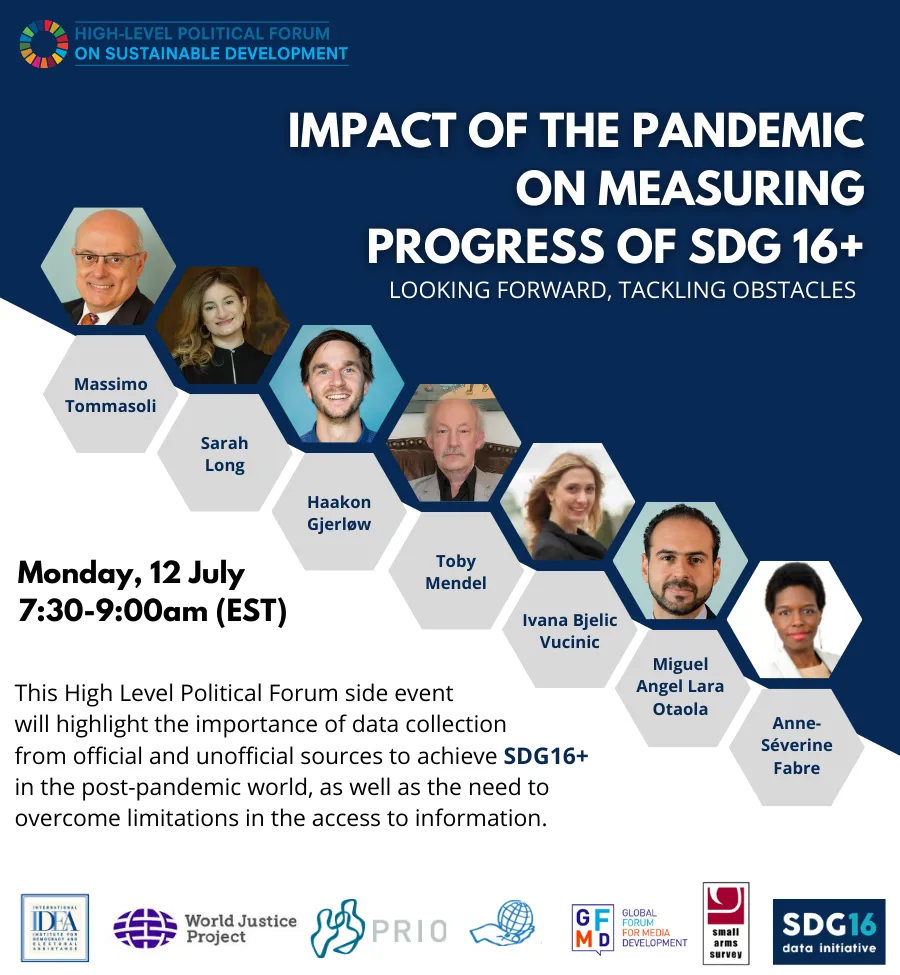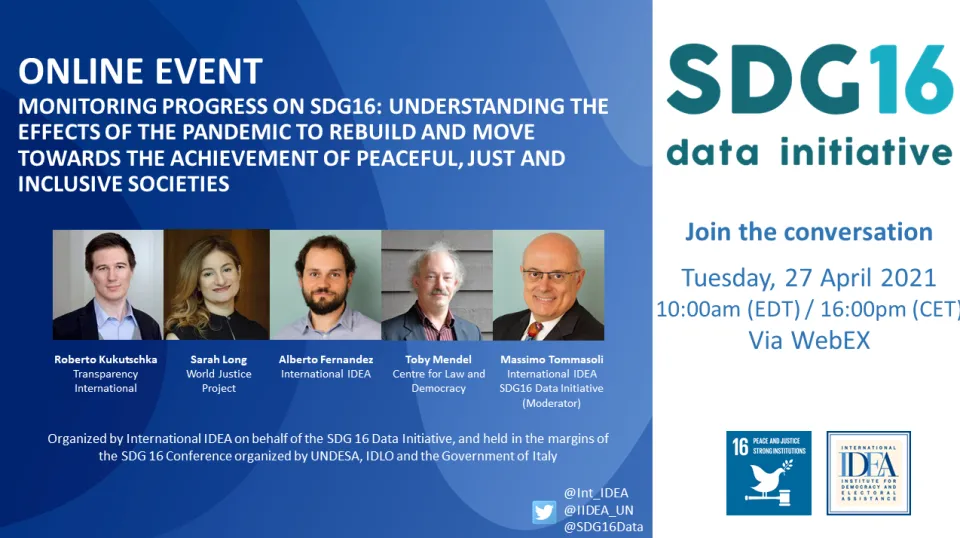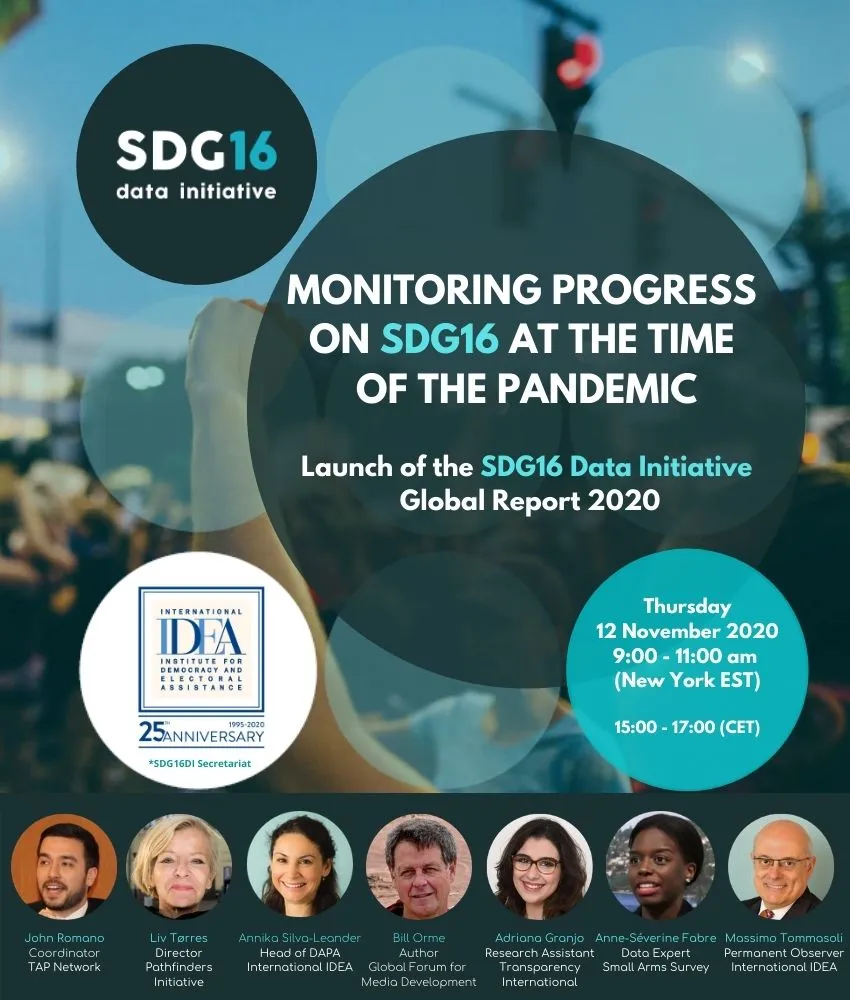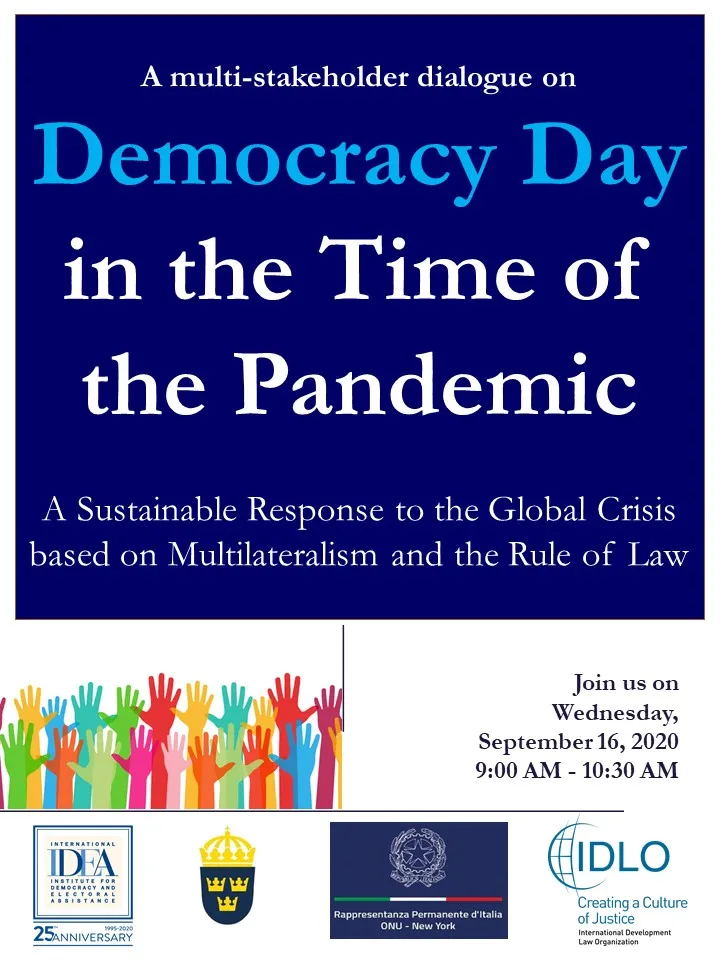Bridging the data gap to monitor progress in advancing peaceful, just and inclusive societies at the time of COVID-19 – challenges and opportunities for partnerships
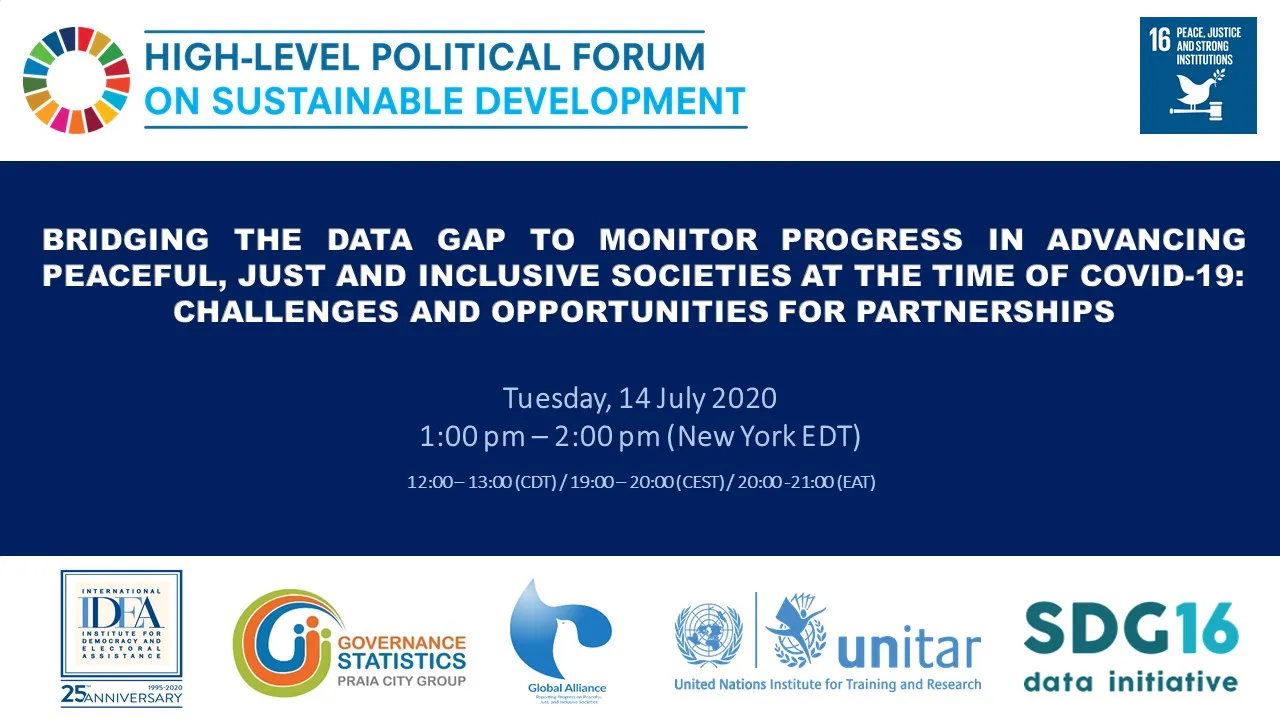
The call for accelerating action and implementing transformative pathways on the 2030 Agenda is confronted with the challenges posed by the COVID-19 pandemic. Both the governmental and multilateral responses to the crisis and the post-COVID-19 recovery initiatives will impact on the implementation of the 2030 Agenda. The broad areas covered by SDG16 are particularly relevant for informing the action of governments and other stakeholders by complementing official and non-official data at a time of unprecedented social and political stress.
The session will focus on challenges and opportunities to improve the quality, availability and use of governance, security and justice data through partnerships between official and non-official entities at country level. The session will offer examples of how stakeholders in several countries are working together to measure and monitor the progress of peaceful, just and inclusive societies to understand where data gaps are, why they exist, and what can be done jointly to fill and build them on the national, regional and global activities of three leading SDG16 multi-stakeholder networks: the Praia City Group, the SDG16 Data Initiative, and the Global Alliance.
Five years into Agenda 2030, there remains significant official data gaps across SDG 16. While there has been progress in addressing the large number of Tier 3 indicators (in 2017 there were 8 indicators that lacked an internationally agreed methodology) now all indicators have been reclassified to Tier 2 – an agreed methodology but less than 50% of countries reporting data. A key finding from the 2019 review of SDG16 at the HLPF is that critical gaps continue to persist in terms of the coverage and the quality of data available on all targets under SDG16. Further, analyses of SDG16 progress captured in VNRs show that lack of reliable data remains one of the top challenges for all countries.
National Statistical Offices have an important role to play in coordinating stakeholders producing data and statistics to monitor progress on SDG16, including civil society and the private sector. An inclusive approach to coordination and partnership is critical for addressing data gaps especially as in many cases data already exists in multiple domains, but it is not being utilized. The challenges posed by the COVID-19 crisis are already showing that the pandemic will bring about important impacts and pressures on National Statistical Offices (NSOs). Civil society involvement, jointly with government institutions, can contribute to reliable, good quality comparable data and civil society can also reduce the capacity strain on NSO through strategic partnerships with official data collectors.
This session has the following objectives:
- To showcase innovative data collaborative partnerships between various data providers around SDG16
- To identify and unpack challenges related to SDG16 data collection, as well as around data sharing and cross-fertilization amongst data providers
- To foster an interactive dialogue amongst participants around best practices, opportunities and potential solutions to scale up within the SDG16 data community
For questions to the panelists, please e-mail Ms. Amanda Sourek at a.sourek@idea.int or tweet us at @IIDEA_UN.
